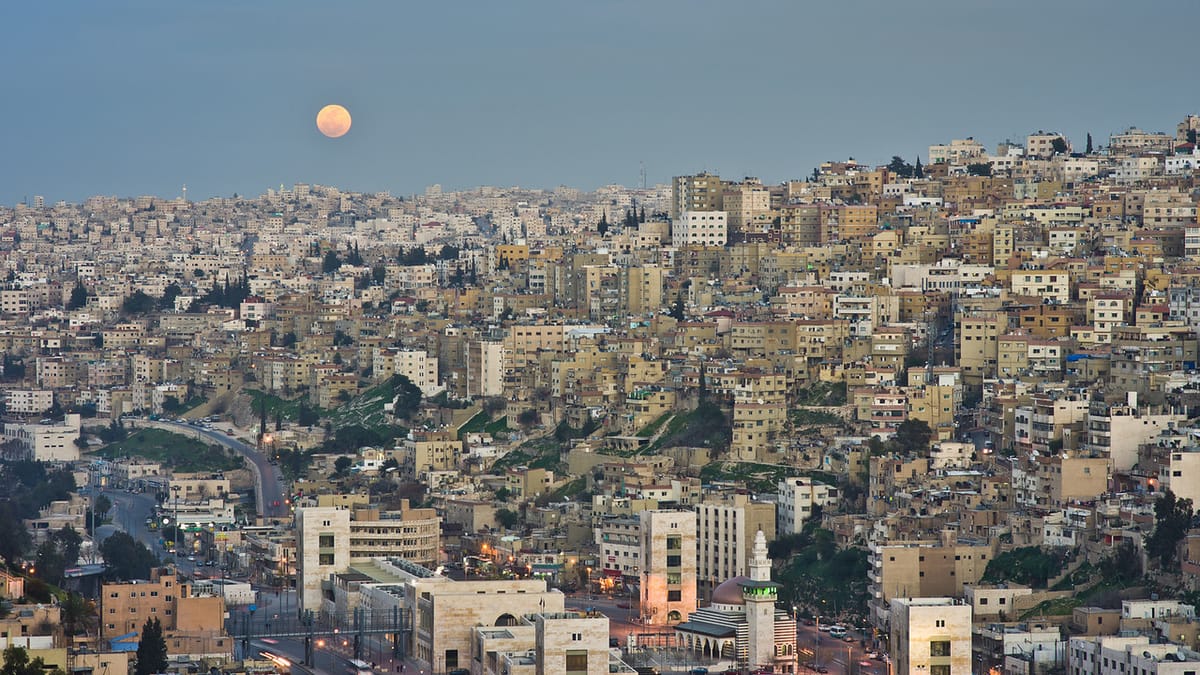Is Amman really that boring?

Ammanymous
Once known as Philadelphia in Hellenistic times, Amman is the capital that was not supposed to be the capital of a country that was not supposed to be a country. Its history has always been shaped by wider events in the region, including the acceptance of waves of refugees during the Nakba and continuing to the present day with the 2003 American invasion of Iraq and the ongoing proxy war in Syria. Well over a majority of Jordanians are of Palestinian origin, but the ramifications of this are such that results from the last census conducted in 2004 keep the exact makeup of the population a secret. While the Palestinian population pays most of the taxes, the Hashemite rulers allow only the Bedouin Arab population to work in the army and intelligence services, with even rudimentary political representation denied to Palestinians. Following the wave of protests in Amman and the rest of the Arab world in 2010-11, the ruling class gave some minor concessions.

Those privileged enough to study abroad in Jordan, as well as many who call the region home, often label Amman ‘boring.’ Compared to other locales, the city might not be exotic enough to titilate the well-traveled orientalist. English is widely spoken and many familiar Western companies have set up shop here. Like many places outside the global North, initiatives to improve the quality of life develop along an economic model rejected by privilged travelers as neoliberal or capitalist. The flashy malls are, indeed, a representation of what the upper middle classes in an unequal economic system are trained to aspire to. They are not authentic enough for the discriminating international jet set, but after awhile, even those visitors learn to look for what makes Jordan unique and memorable.
There are also gripes about what is perceived as inferior compared to one’s own home country. Similar to any large city that people flock to, Amman is working through a number of issues. Mass transportation is limited, with most relying on taxis and shared vans to get around. Walking from place to place is not as easy as in European cities and bicycles are a rare sight. It is not London, though, there are many wealthy visitors who park their money here.
Again, for the jaded world-weary traveler with enough access to wealth to have seen it all (or most of it), it is the connection with the people and, perhaps, even giving back to society that bears the most fruit in terms of memories. Eventually, they might even come to the opinion that it is the most powerful countries in the international system that need to change the most.

The foreign population includes, among others, students and academics studying Arabic, NGO workers dealing with the fallout from conflicts in neighbouring countries, archaelogists digging through the millenia of layers of habitation, Americans (and others) working in the military and intelligence sectors, and even Christian missionaries. The compact size of Amman and limited number of venues that cater to the tastes of Westerners makes it possible to connect with any number of people who work in these fields.
Getting to know locals in an authentic way is more difficult, which is always the case where one’s life priviliges significantly diverge from another’s. In the end, the visitor always has the means and the ability to leave while the other party may not.
Every foreigner has their own reason for coming and residing here. Jordanian society has opened itself up to many different kinds of people and has given international visitors the privilege of being guests. As an Arab country that has relations with America and Israel (with Jordan sometimes characterised as their client or puppet state), it has continued to be stable. This openness is a strength that the leadership understands is necessary to maintain a tenuous foothold in one of the most volatile regions in the world.



